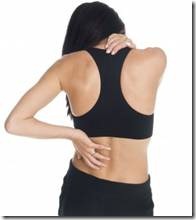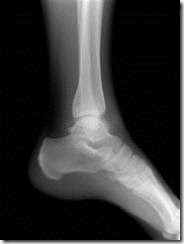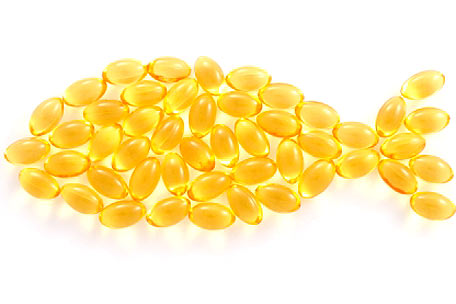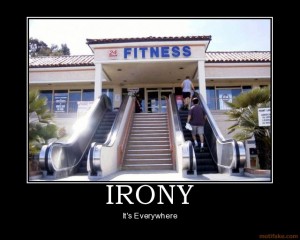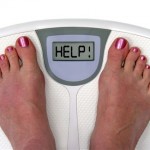The average person need not worry about overtraining. In fact, the average person needs to worry about getting ENOUGH training. But you’re not average are you?
Given that you’re on my blog, my guess is that training is like breathing or eating…just a necessity of life.
And with this sort of attitude toward exercise and challenging workouts, you’re likely to have to deal with injury and the possibility of over training at some point in your athletic career.
I’ve been lucky in that my injuries have been few in my near half century of pushing my body to its limits. (Holy cow! I still can’t believe I’m almost 50 in a few years and I’m going as strong and hard as I did in my 20’s). In any case, I’ve been fortunate.
This is due in part to the nature of my training. I never played football or other high contact sports. I did take up women’s hockey a few years ago and loved it. My biggest injury there was a shot to the shin. Remarkably my shin guard didn’t cover that small area that the puck hit and the result was a grapefruit sized welt that was x-rayed, drained and iced for about 2 weeks (no fun). But I digress…
Regular workouts are supposed to increase your muscle mass and decrease your body fat, right? Well, yes, with some exceptions. Some of you ramp it up too much especially when they start a new training regimen. Overdoing your workouts can actually lead to diminished strength and increased body fat—your body’s way of begging for a break. While your body can handle a particularly tough workout, it also needs time to recover from the stress overload,
 The best way to recover from that particularly tough workout is just a day or two of rest followed by a light bout of exercise. Sleep is also magical when it comes to recovery. Try to make a point to get at least eight hours of sleep a night which your body will need to repair those tiny muscle tears that occur during workouts and enable your body to build new muscle. Good nutrition goes without saying. It’s impossible to run a high performance car on potato chips and the same goes for your body. Think lean protein, whole grains and plenty of fruits and vegetables.
The best way to recover from that particularly tough workout is just a day or two of rest followed by a light bout of exercise. Sleep is also magical when it comes to recovery. Try to make a point to get at least eight hours of sleep a night which your body will need to repair those tiny muscle tears that occur during workouts and enable your body to build new muscle. Good nutrition goes without saying. It’s impossible to run a high performance car on potato chips and the same goes for your body. Think lean protein, whole grains and plenty of fruits and vegetables.
 Here are a couple of things to watch out for to guard against overtraining:
Here are a couple of things to watch out for to guard against overtraining:
1. Decreased performance. A drop in your workout performance is one of the earliest signs of over training. I highly recommend keeping a fitness/training journal to record your workouts. This way you don’t need to rely on ‘feel’, but your workouts are quantifiable. You’ll see right away when you’re meeting, beating or falling short of your goals.
2. Where’s the joy? When the ‘fun factor’ is missing, this can be a major sign of exercise burnout.
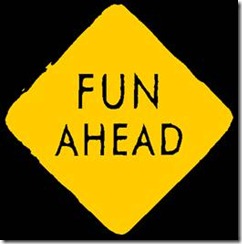 3. Mood swings. The same stress hormones you release when you’re emotionally stressed are also released when you’re physically overloaded. If you find you’re dealing with depression, anger, confusion, anxiety or irritability it may be a sign that your body is overstressed physically.
3. Mood swings. The same stress hormones you release when you’re emotionally stressed are also released when you’re physically overloaded. If you find you’re dealing with depression, anger, confusion, anxiety or irritability it may be a sign that your body is overstressed physically.
4. Longer recovery time. If muscle soreness persists for longer than usual and you’re dragging your sorry butt through your day, you’re may be over trained and definitely need more rest.
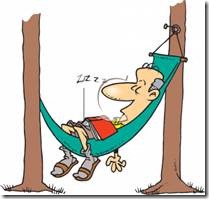 5. Increased resting heart rate. If you’re really tuned in and note your resting heart rate, an increase in your normal resting heart rate, could indicate that you’re placing excessive stress on your body.
5. Increased resting heart rate. If you’re really tuned in and note your resting heart rate, an increase in your normal resting heart rate, could indicate that you’re placing excessive stress on your body.
6. Fatigue and insomnia. Sometimes we’re our own worst enemies. Where someone else would take a nap, we may go for a short workout to increase energy and alertness. This may wake you up temporarily but will take its toll in the long run. Then when it is time to sleep, you may be staring at the ceiling. These are absolute signs that over training is an issue for you.
8. No appetite. Just when your body needs fuel, you can’t eat a bite. Your appetite can be an indictor of metabolism. In an effort to force a slow down in workload (by not having any energy) you may notice no desire to eat. Your body is ingenious, here’s the cycle: no appetite=no food=no energy=less work=more rest=more recovery. It doesn’t work this way if you don’t listen to your body. Give your good food, less work (on occasion) and more recovery to avoid this.
9. ‘I’m getting fatter!’ You may lose weight but gain fat, probably not one of your goals. In an over stressed situation, your body releases more cortisol, a stress hormone which encourages fat storage. As well, stress inhibits hormones that help increase muscle. This is a lose-lose situation. You’ll weigh less, but your body will lose strength and be less efficient at fat burning.
 10. ‘I’m getting sick.’ If you seem to be catching every cold and flu as if you were in kindergarten again, this is a sign that your body isn’t recovering from your workouts. A weakened immune system can result from over training. Don’t try to push through when you’re under the weather. Bottom line: Nurture your body and give it a much-deserved break when it needs to rest after that tough workout.
10. ‘I’m getting sick.’ If you seem to be catching every cold and flu as if you were in kindergarten again, this is a sign that your body isn’t recovering from your workouts. A weakened immune system can result from over training. Don’t try to push through when you’re under the weather. Bottom line: Nurture your body and give it a much-deserved break when it needs to rest after that tough workout.
